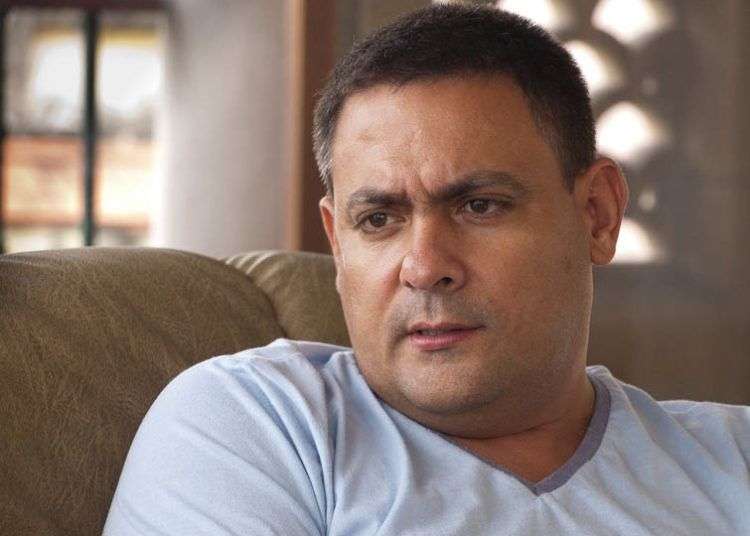By: Diona Espinosa Naranjo
Starting a career in Cuban cinema alongside one of the great documentary makers in the world is a plus, but this does not define the director Ismael Perdomo. At only twenty years of age, he managed to Santiago Álvarez to trust on him to be the assistant director of two of his last documentaries. After the death of the called Third World Chronicler, Perdomo led the team with which Alvarez worked, and completed a trilogy they both had begun on Cuban music.
Perdomo has filmed about 40 documentaries with the Cuban Film Institute (ICAIC by its Spanish acronym), although he often has become an independent filmmaker, going through the edges of Cuban official film history due to its limited presence in television and other media.
And despite his productions are not widespread in Cuba, they do have attracted the attention of major foreign broadcasters such as French and Spanish Canal Plus, Documanía, Mezzo Channel, BBC, Canal Arte Francia, Canal Encuentro Argentina or Discovery Channel. His films were displayed in more than seventy countries and many of them achieved international recognition. Ismael Perdomo still insists on filming in his country, even though most of his films here remain in an unknown area.
Managing that Santiago Álvarez to accept tutoring “Noticiero ICAIC 1501”, your degree thesis and debut film, proves the strong bond between you and this master of the documentary. What does having known him mean to you?
For me there are two Santiago, with a very thin bounding line between the two of them: the documentary maker and the man I knew. In his late years I was fortunate to be his friend. He was already a wiser person with another temperament and indulgent, as he said.
I developed my work from his love. If we talk about aesthetics in documentary film, it would be easier to summarize: a great teacher, a man who opened countless ways to documentary world, he was irreverent with codes and a owned a magical ability to reinvent himself.
But from your work with Santiago to date, your professional life has changed a lot. What motivates you today?
I almost always start from curiosity. I am among those who think that cinema is to have fun and live from it, not to suffer. I do not prepare the topics; I’d rather get as a child, very naive. I do not consider myself an artist, but an intuitive ignorant because I am driven a lot for this way of working.
I’m more interested in “document” documentary, without subterfuge or fashions through which I could deceive a specialist, and receive a prize because he thinks my work is innovative and provocative. I avoid iconoclastic materials; sometimes they are boring and die very quickly.
Film production and distribution in Latin America is still difficult. Why is this a more critical factor in Cuba, especially for documentaries?
The issue is a complicated matter. It depends on numerous “little bits” before filming. If you are lucky, a distributor or producer is interested in your work when seeing it. However, they usually hire you from the idea, the script or plot.
Cuban filmmakers arrived very late to the market with the work already finished and at that point it is very difficult to distribute the film, although this exercise has been attempted in several independent films during the growth of the project.
On the other hand, in terms of aesthetic development we have remained behind. There is a great tradition of documentary filmmaking in Cuba, but now we have lost communication with international film processes and even with the closest one: Latin América.
We are almost back to all these phenomena. Our country should worry about fostering this heritage and knowledge of Cuban cinema and adapt it to the current conditions of the country.
You have participated in several national and international events, even as juror, which I suppose has allowed you to have a broader view to channel a Project. What is your method?
My method is to believe that I am able to take a movie to the end. I never bet on a single work. From the aesthetic concept and the topic, I look for all the festivals, prizes or privileges. Those are many negotiations, and not always about money. I also conduct some kind of creative production; I’ve never had a major producer behind me, except for Lázara Herrera, Santiago Alvarez´s widow, who is a sort of guardian mother and, at the time, preventive fate of my own hobbies with whom I have counted not to stop.
Do you find functional your way of making movies?
With my first film “Noticiero ICAIC 1501”, some officials were disputing whether to display it or not on TV. Since then I told myself never to think of a censor’s decision to exhibit my work. I was going to do it and that’s the price I would pay if it was seen or not.
I also knew I wanted to stay here. I’ve been somewhat guilty that my work is practically unknown in Cuba, especially between 1997 and 2005, but no regrets.
However, in this period I won the award for best documentary presented in France in 1999 and a year later in South Korea with “Para bailar en la Habana ” (To dance in Havana). Moreover, I exhibited the documentary series “Cuba por dentro” (Inside Cuba) in over 70 countries.
I have always had excellent communication with ICAIC. I’ve never changed even a comma of my projects, although I had to opt for non-traditional methods.
You have said that documentary exists, despite reality. Do you think that complex contexts lead to more and better documentaries?
When I say that documentary film exists despite reality is because the document has a large degree of subjectivity. It does not require a great success for completion, but the conditions of a country are unique and valuable to document. Cuban current society is polysemic, dynamic, and ambiguous, complicated and has many points of view. The context forces you to return to simpler stories to help to understand ourselves as Cubans. Maybe that will be a great twist of documentary film on the island.
What is the greatest reward you get as a filmmaker?
It is just when I have been defended against unfair or opportunistic people who want to sabotage my work, and when one of my materials can be understood by a Cuban, a foreigner or people of any educational level. For me that’s essential.
“Mata, que Dios perdona” is your only fiction film. What relevance does it have for you?
Filming it was an adventure. Eliseo Altunaga and I wrote it in one night and it was shot in 15 days. But fiction bothers me in such a way that I was about to sell the script twice.
It always bothered me that critics never spoke neither very bad nor very good about the film. I wanted people to get involved when seeing it. ICAIC supported the film and displayed it, but it was not marketed around the country.
It was a good exercise that I think is not over yet. There are still surprises on it. We are now preparing another production that will last forty more minutes. I will film it here, as I always like to do.










